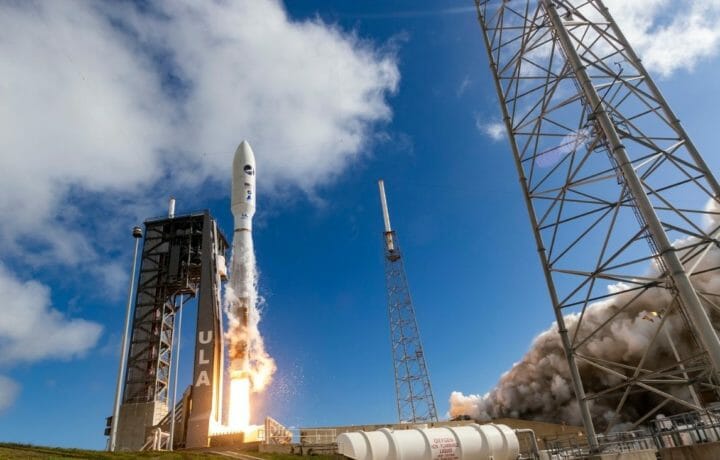The United States Space Force, the sixth and newest branch of the United States military, is boldly going not to deep space anytime soon, but soon it will operate in the domain of cyberspace. The first “cyber warriors” will soon join the ranks of the Space Force, as cyber personnel are transferred from the U.S. Air Force.
These individuals will be charged with protecting sensitive systems and missions in the cyber domain, which has become an increasing element of the United States’ critical infrastructure.
“Why it’s so important for us to have those cyber professionals on the Space Force team — organic to our team — is that they will be part of our crew force,” Chief of Space Operations Gen. Jay Raymond said during a Feb. 3 media call as reported by C4ISRnet. “They will understand the cyber terrain of space, and it will help us protect this critical domain from that threat.”
The cyber warriors might sound like something out of science fiction, but rather than being equipped with cybernetic enhancements, these individuals will play a crucial role in defending ground terminals, and even space assets such as satellites. Already Space Force cyber units, including the 61st Communication Squadron, have taken part in Air Force cyber exercises to get them up to speed.
Space Force Threats in CyberSpace
The threat from cyberspace could be as great – potentially even greater – than threats on land, air or sea. Maj. Gen. Stephen Whiting, deputy commander of the Space Force, warned during the annual AMOS space conference Hawaii last fall that cyber defense “will be a principal area of the United States Space Force as we move forward.”
The barriers of a cyber attack are lower than other forms of attack.
“We know that cyber attack is where we are most likely to face the enemy in space,” Whiting noted.
Part of Space Force’s Spacepower Capstone Doctrine has put significant focus on cyber, especially in how it is used in the collection, transmission and processing of data around the world and in the cyberspace domain. “Because of these dependencies, cyberspace operations within this network dimension are a crucial and inescapable component of military space operations and represent the primary linkage to the other warfighting domains. These dependencies can also create avenues of enemy attack that offer lower costs and higher chance of success than orbital warfare within the space domain only,” the doctrine noted.
Space Delta 6 Executes Cyber Operations
Earlier in February, members of the Space Delta 6, which is headquartered at Schriever Air Force Base (AFB), officially transferred some 40 personnel to the Space Force. These Guardians – the official name of Space Force personnel – will execute cyber operations to protect space operations, networks and communications, in addition to operating the Air Force Satellite Control Network.
Space Delta 6, which was activated on July 24, 2020, is currently under the command of Col. Roy V. Rockwell, and the unit replaced the 50th Network Operations Group, which had been part of the 50th Space Wing. That unit had been active from March 2004 until it was deactivated last July. Space Delta 6 provides assured access to space and cyberspace through the worldwide $6.8 billion Air Force Satellite Control Network while providing critical information to the U.S. military’s warfighters through the Global Broadcast Service.
According to its mission statement, “Delta 6 provides assured access to space through the $6.8 billion Air Force Satellite Control Network (AFSCN) and defensive cyberspace capabilities for space mission systems. The Delta plans, programs, integrates, operates and maintains command and control and common-user systems in support of U.S. Space Command, U.S. Air Force Warfare Center and the Missile Defense Agency.”




